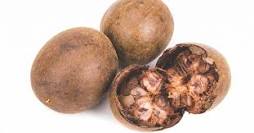The Case of Sugar
- dietrectory
- Jul 12, 2022
- 3 min read
Updated: Aug 4, 2022
You have heard enough about negative effects of sugar to your health... what's more....

There is not much to argue about the health impacts of excessive sugar intake #Sugar. Many doctors and nutritionists have already told us about them. Robert Lustig of the University of California, San Francisco, has a viral YouTube video "Sugar: The Bitter Truth." which is quite an in-depth lecture about sugar from a scientific and political perspective. There are greater dangers of sugar, not only causing #cavities and #obesity, but also harming our organs and disrupting the our hormonal cycles. The key here is "excessive consumption" of sugar, an over dosage that messes up the body's ability to handle it. Why excessive? Well, American Heart Association recommends men should consume no more than 9 teaspoons (36 grams or 150 calories) of added sugar per day. For women, the number is lower: 6 teaspoons (25 grams or 100 calories) per day. We all know that anyone who adopts to regular North American diet will surpass that dosage (a couple cups of coffee or an ice-cream cone per day will do).
The key here is "excessive consumption" of sugar, an over dosage that messes up the body's ability to handle it.
Our bodies do need sugar as energy and fuel. Studies by Dr. Vera Novak from Harvard University shows how the importance of #glucose in the brain, to produce neurotransmitters, the brain’s chemical messengers for communication between neurons. low glucose levels in the blood could cause the neurons communication to break down.
However, elevated blood glucose on the other hand could harm neurological functions; hence cause issues such as #depressions, mood swings, as well as memory loss. Our bodies don't expect sugar to be dominant in our diets. Unfortunately, almost every packaged and processed food in the market will add sugar to make them tasty and selling better.

Natural Sugar Intake
To be honest, there is enough #natural sugar in our diet without the need of added sugar, which will cause excessive sugar intake. For example; one apply contains approximately 20 grams of glucose. A banana contains approximately 6 grams of glucose, half-cup of yam has about 8 grams of sugar...etc. A couple of these sweet fruits and vegetables have more than enough natural sugar to keep our body functioning. Added sugar is really not necessary.
Sugar Alternatives
There are sugar alternatives to help crunching your cravings if necessary. Some natural sweeteners such as monk fruit extract, coconut palm sugar and stevia leaves are generally safe because they will not elevate your blood sugar level. This are good choices for people with diabetes due to insulin resistance/deficiency. There are also natural sweeteners such as fruit juice, honey, molasses, and maple syrup; however, they do elevate blood sugar and add calories to your diet.
Sugar alcohols such as #Erythritol and #Xylitol extracted from plants are also popular. They will still sightly elevate your calories and blood sugar but not as significant as regular sugar. Bear in mind that excessive intake of sugar alcohol could induce laxative effect, causing bloating, intestinal gas and diarrhea.
There are also artificial sweeteners in the market but these are intense sweeteners (much sweeter than sugar) and some of them may cause a variety of health problems, including cancer. For example, studies in 1970s had linked an artificial sweetener called saccharin to bladder cancer. Just be mindful these are synthetic sweeteners that our bodies may process them differently than natural sweeteners and sugar alcohols.
Get Professional Advice
Pay attention to the ingredients and labels for any sweeteners on the shelf, as nowadays, it is not uncommon to have several types of sweeteners mixed and combined in use. At the end of the day, they are still processed food with less comparable nutrition values than whole food. It is always wise to consult your doctors and nutritionists if you have doubt which type of sweeteners should be used.
.png)







Comments